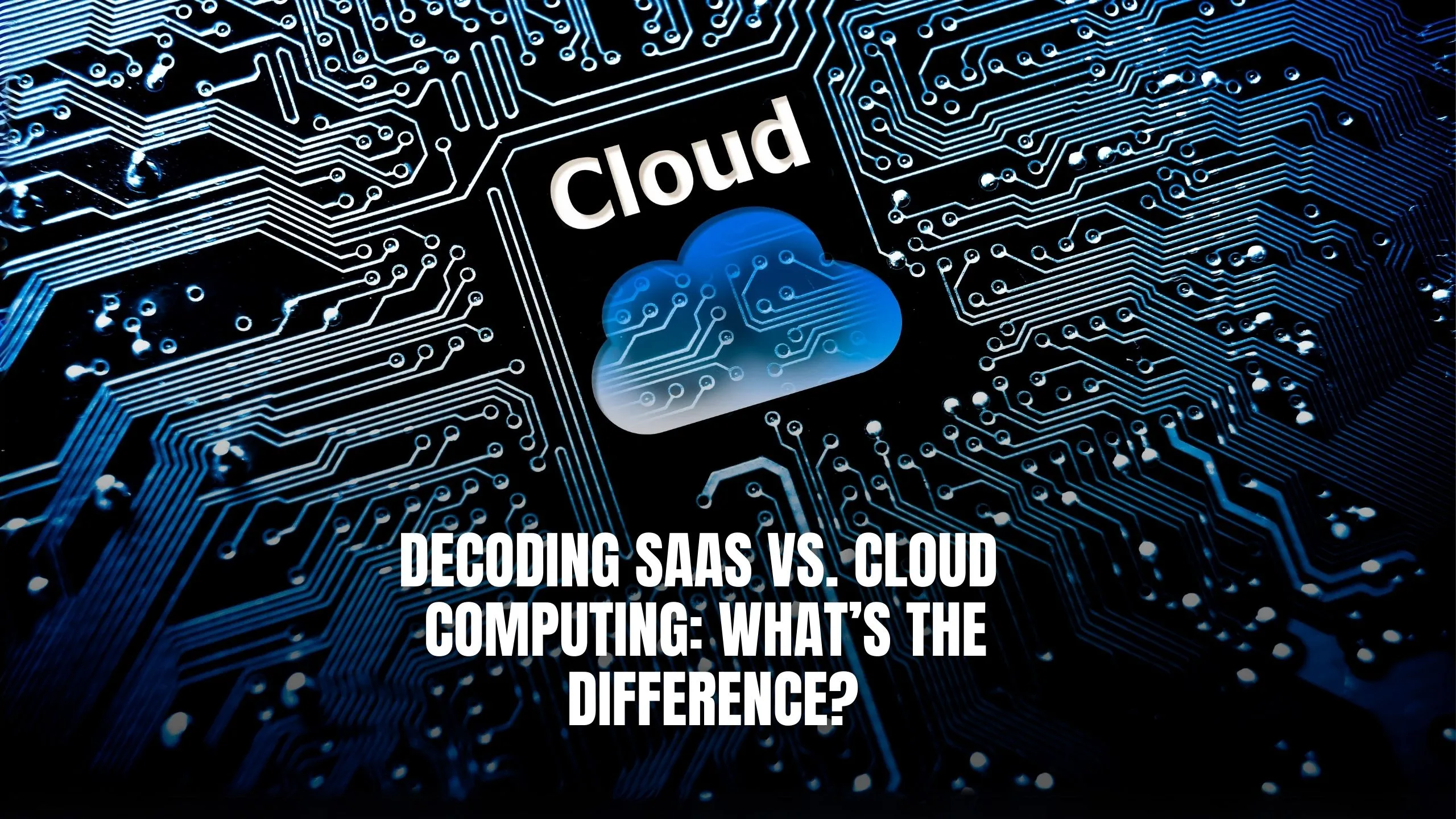Decoding SaaS vs. Cloud Computing: What’s the Difference?
- Expense Management Software Credit Cards Investing Business Solutions


Decoding SaaS vs. Cloud Computing: What’s the Difference?
In the realm of technology, terms like Software as a Service (SaaS) and cloud computing are often used interchangeably, leading to confusion about their distinct meanings and functionalities. In this blog, we’ll unravel the differences between SaaS and cloud computing, shedding light on their unique characteristics, applications, and implications for businesses.
1. Understanding SaaS (Software as a Service)
SaaS refers to software applications that are hosted and accessed via the internet, eliminating the need for users to install and maintain software on their local devices. Instead, users can access the application through a web browser, paying a subscription fee for ongoing access. Popular examples of SaaS include Salesforce, Google Workspace, and Microsoft Office 365.
2. Exploring Cloud Computing
Cloud computing, on the other hand, is a broader concept that encompasses a variety of services and resources delivered over the internet. These services include infrastructure (IaaS), platform (PaaS), and software (SaaS) as a service. Cloud computing allows organizations to access computing resources, such as storage, processing power, and networking, on-demand and pay only for what they use. Leading cloud service providers include Amazon Web Services (AWS), Microsoft Azure, and Google Cloud Platform (GCP).
3. Distinguishing Factors
While SaaS is a subset of cloud computing, there are key distinctions between the two. SaaS specifically refers to software applications delivered over the internet, whereas cloud computing encompasses a broader range of services, including infrastructure and platforms. Additionally, SaaS applications are typically accessed through a web browser, while cloud computing services may involve various delivery models and deployment options.
4. Benefits and Use Cases
SaaS offers several benefits, including scalability, flexibility, and cost-effectiveness, making it ideal for businesses seeking to streamline software deployment and management. Cloud computing, on the other hand, provides organizations with access to a wide range of computing resources, enabling them to innovate, scale, and optimize their operations more efficiently. Both SaaS and cloud computing have diverse use cases across industries, from enterprise software solutions to data storage and analysis.
5. Considerations for Businesses
When considering SaaS vs. cloud computing, businesses must evaluate their specific needs, requirements, and objectives. While SaaS offers ready-to-use software solutions with minimal setup and maintenance, cloud computing provides a broader spectrum of services for infrastructure and platform management. Ultimately, the choice between SaaS and cloud computing depends on factors such as scalability, customization, data security, and budget constraints.
Relevant SaaS Products:
- Salesforce: A leading CRM platform that offers a wide range of cloud-based applications for sales, marketing, customer service, and more, enabling organizations to manage customer relationships effectively.
- Google Workspace: Formerly known as G Suite, Google Workspace provides cloud-based productivity tools, including Gmail, Google Drive, Docs, Sheets, and Meet, fostering collaboration and productivity among teams.
- Microsoft Office 365: Cloud suite includes Word, Excel, PowerPoint, Outlook, and Teams, facilitating seamless creation, collaboration, and communication across devices.
- HubSpot: Inbound marketing platform provides SaaS solutions for CRM, marketing automation, content management, and customer service, enhancing customer experiences.
- Zoom: Popular cloud-based platform offers reliable, scalable video conferencing solutions for virtual meetings, webinars, and remote collaboration.
Conclusion
In conclusion, while SaaS and cloud computing are closely related concepts, they serve distinct purposes within the realm of technology. SaaS refers specifically to software applications delivered over the internet, while cloud computing encompasses a broader range of services and resources. Understanding the differences between SaaS and cloud computing is essential for businesses seeking to leverage technology effectively to drive innovation, productivity, and growth.
Simplify Your SaaS Stack with Subscribed.fyi!
Unlock exclusive deals and savings on essential SaaS tools for your business needs. Sign up for free today to access deals on Salesforce, Google Workspace, Microsoft Office 365, HubSpot, Zoom, and more. Streamline your software subscriptions and maximize productivity with Subscribed.fyi Deals!
Relevant Links:








